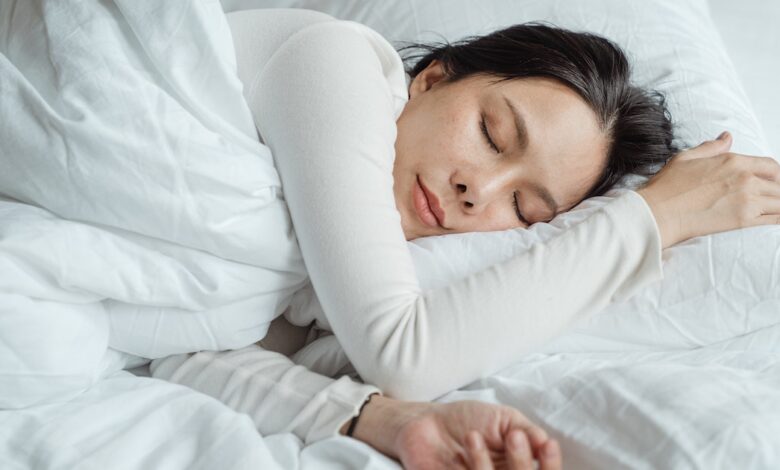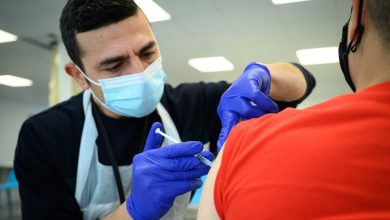FDA approves sleep apnea tech from EnsoData, Samsung


National Council on Aging statistics indicate an estimated 39 million U.S. adults have obstructive sleep apnea, while 936 million adults around the world are estimated to have mild to severe OSA. Because relaxed airways that are obstructed or partially obstructed distort breathing while sleeping, patients may experience disruptions in oxygen supply up to 30 times per hour, disturbing sleep quality and resulting in daytime fatigue and other long-term effects.
This prevalent, and often undiagnosed sleep-induced respiratory condition can exacerbate an array of cardiovascular, neurodegenerative and metabolic diseases, according to Mount Sinai Health System’s funding announcement on February 12. Challenges in diagnosing sleep apnea and research that shows positive airway pressure treatment can lower healthcare costs motivate healthcare organizations and government agencies like the U.S. Food and Drug Administration to look in all directions for better ways to help diagnose the roughly one in eight people worldwide who aren’t getting enough oxygen when they sleep.
Health tech innovations that leverage algorithms, machine learning and wearable sensors – like the recently approved jaw-sensing sleep apnea device from Belgian-based startup Sunrise that analyzes bio-signals from mandibular movements and can calculate respiratory patterns – could broaden access to sleep apnea care.
The following roundup of sleep apnea innovations includes device-agnostic deep learning from EnsoData and a new Samsung Galaxy Watch feature that could potentially guide more patients to sleep studies and improve clinical evaluation of sleep study results.
There is also news from federal agencies about deaths attributed to recalled PAP machines, and a new five-year, $4.1 million grant from the National Heart, Lung and Blood Institute at the National Institutes of Health that will support Mount Sinai’s ongoing efforts to develop an AI model that analyzes multiple sleep metrics and generates a risk profile for sleep apnea patients.
AI that detects sleep apnea with oxygen monitoring
With advanced analytics, data from pulse oximeters could aid physicians in better tracking sleep disorders.
EnsoData announced Tuesday that it has received FDA 510(k) clearance for an AI algorithm called EnsoSleep to support the diagnosis of sleep disorders using any FDA-cleared pulse oximeter, which measures the saturation of oxygen carried in red blood cells.
“Expanding EnsoData’s capability to collect and analyze [photoplethysmogram] signals from simple, wearable pulse ox devices will accelerate the identification, diagnosis and treatment of sleep-disordered breathing events, including sleep apnea,” said Justin Mortara, president and CEO of EnsoData, in a statement.
Using common medical waveforms collected across healthcare settings and deep learning AI, Montara said the company hopes to create “a new normal” in sleep care. The algorithm analyzes apneas and hypopneas, sleep stages and other sleep measures, which a qualified healthcare professional can review before producing a final patient sleep report.
The result could be transformative for patient access and outcomes, added Chris Fernandez, EnsoData cofounder and chief revenue officer.
“Our interoperable AI tools are democratizing the ability to accurately measure sleep and aid in diagnosis of sleep disorders broadly – for the existing category of FDA-cleared pulse oximetry devices and sensors that are already widely deployed, in use clinically, and growing in their adoption daily,” he said.
FDA grants De Novo approval for Samsung watch oxygen sensor
As part of its efforts to provide Galaxy Watch users with tools that improve their sleep health habits, Samsung said in an announcement earlier this month that it will release its new FDA-approved sleep apnea feature, with data available on the Samsung Health Monitor app, in the U.S. in the third quarter.
In October, South Korea’s Ministry of Food and Drug Safety previously approved the technology for users over the age of 22 who have not been diagnosed with sleep apnea to detect signs of moderate to severe OSA over a two-night monitoring period in 10 days, Samsung said in a statement February 10.
The watch has a bioactive sensor designed to track blood oxygen levels during sleep to see if those levels drop, according to an article last week by the Sleep Foundation.
Though Samsung ultimately experienced a 19% year-over-year decline in shipments for 2023, according to 9to5Mac in December, the latest Galaxy watch sold well.
Mount Sinai furthers predictive sleep analytics
Mount Sinai will develop machine learning to predict the consequences of serious sleep disorders for individual patients, the healthcare organization said in a statement on February 12.
The researchers said the AI results will better reflect the underlying physiology of how oxygen is obstructed and the ways it impairs a patient’s sleep function. It also said that the apnea-hypopnea index – the current diagnostic measure for OSA obstructive sleep apnea – has limitations.
The principal investigator, Ankit Parekh, director of the Sleep and Circadian Analysis Group and assistant professor of medicine at the Icahn School of Medicine at Mount Sinai, said in the statement that assessing the severity of obstructive sleep apnea in clinical practice would shift the paradigm in the clinical management of OSA.
The AI automates metrics across ventilatory, hypoxic or arousal categories with data-driven weights to determine risk of adverse outcomes, the health system explained.
Three cohorts of nearly 11,000 participants suggested the ML model could predict the probability of sleepiness due to apnea with an accuracy of 87% while the AHI measure predicted sleepiness at about 54% precision, Mount Sinai said.
Next, the health system will test two ML models for sleep apnea – recording patient brain waves, oxygen levels, heart rates and breathing during polysomnogram sleep studies for three months – and validate findings against sleep data for statistical analysis.
New FDA update on Philips Respironics’ 2021 device recalls
PAP machines which deliver oxygen through a mask, are one way to treat sleep apnea. However, for daily use, “It can take time to get used to using the PAP setup,” Mount Sinai noted in its PAP education.
On January 31, the FDA reported that 561 deaths were connected to a 2021 recall of Philips Respironics devices made with polyester-based polyurethane foam used to reduce sound and vibration, according to more than 116,000 medical device reports it received since April 2021.
Last year, the company was ordered to pay a minimum of $479 million to compensate users of 20 different devices sold in the U.S. between 2008 and 2021, CBS News said in a story on how to apply.
Andrea Fox is senior editor of Healthcare IT News.
Email: [email protected]
Healthcare IT News is a HIMSS Media publication.




